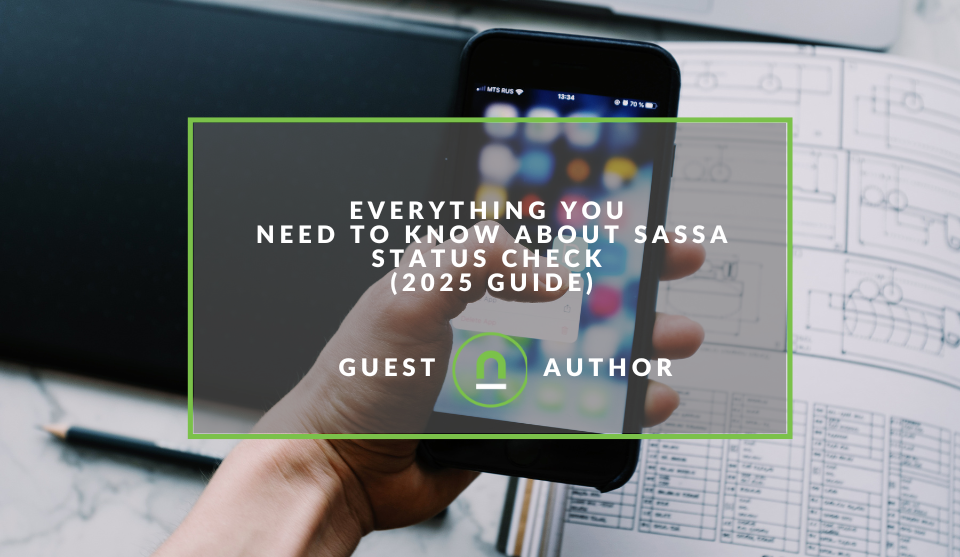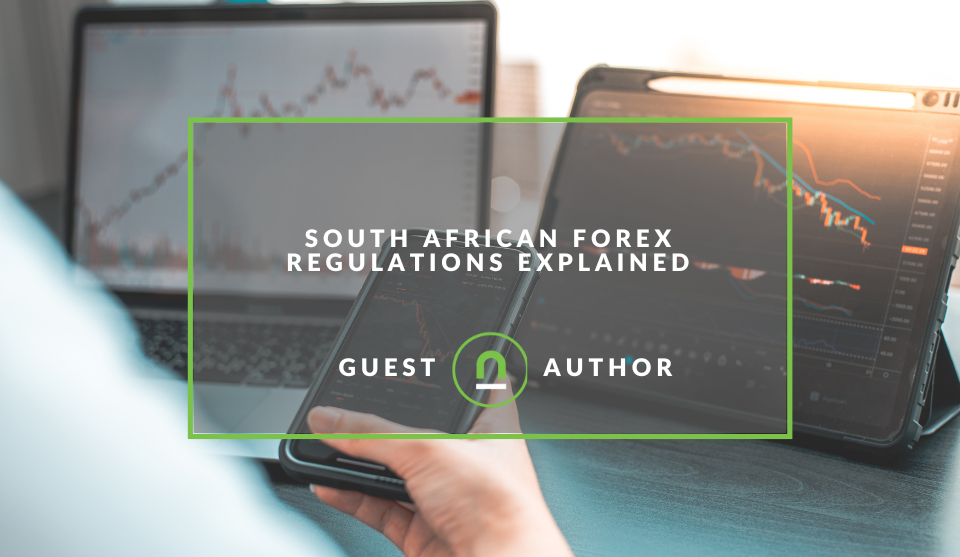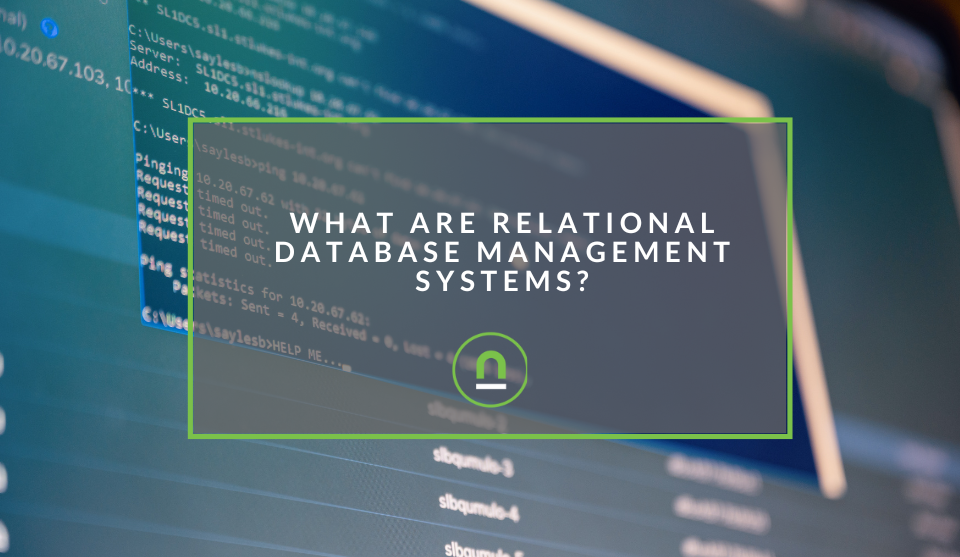Recent posts

Mind, Body & Soul
Do Not Whistle at Night: South Africas Strangest Superstitions
26 April 2025

Geek Chic
How to Replace A Broken Lenovo Laptop Screen
24 April 2025

Money Talks
Everything You Need to Know About SASSA Status Check
13 April 2025

Mind, Body & Soul
The Genetic Diversity of Cannabis Seeds
12 April 2025
Popular posts
Extravaganza
Trending Music Hashtags To Get Your Posts Noticed
24 August 2018
Geek Chic
How To Fix iPhone/iPad Only Charging In Certain Positions
05 July 2020
Extravaganza
Trending Wedding Hashtags To Get Your Posts Noticed
18 September 2018
Money Talks
How To Find Coupons & Vouchers Online In South Africa
28 March 2019
South African Forex Regulations Explained
15 June 2023 | 0 comments | Posted by Amber A. in Money Talks
Forex trading is a popular investment activity in South Africa, on both an institutional and a retail investor side. South Africa has a deep liquid market with several currency pairs, allowing traders to take advantage of the fluctuations between ZAR pairs with various currencies like the US dollar, Euro, British Pound, Australian Dollar and many more.
As trade flows between various countries, larger players enter the market to acquire the Rands or Forex needed to trade and forex traders try to play off of this demand as well as the sentiment of the country itself, which reflects in the currency.
As mentioned, both institutions and individuals can enter forex markets, but that doesn't mean they are a free for all Wild West. It is important to understand the regulations that govern this market. The Financial Services Conduct Authority (FSCA) is the primary regulator of forex trading in South Africa. The FSCA sets rules and regulations that forex brokers must follow, and it also investigates and prosecutes cases of fraud and other illegal activity in the forex market.
What is Forex Trading?
Forex trading means anticipating the next move that a currency pair will make. As the name suggests, a currency pair is made of two currencies. It shows the value of one currency in terms of another. Because of that, a currency pair, or an exchange rate, is in constant movement, as factors from both sides affect the rate.
South Africa is a leading African country in online trading, with several platforms offering trading to retail investors. For example, a South African trader can work on a well-known forex trading platform by simply accessing the services of a South African forex broker.
These Forex brokers need to be accredited to offer these services to traders and follow the country's regulations. Forex regulations are specific to the region, but they also follow international trends and guidelines where applicable.
Forex Regulations in South Africa
One should start by stating the obvious: most of the forex regulations in South Africa are mandatory in almost all other jurisdictions. Maybe even all of them. But for the trader's ease of mind, knowing what to expect when trading from South Africa is essential.
Is it different? The short answer is no.
Facing scrutiny from local financial authorities
Any forex broker may access the South African market if it complies with the FSCA rules. FSCA stands for Finance Service Conduct Authority, the local financial authority in South Africa. Financial authorities exist in all countries. For instance, in the United Kingdom, there is the FCA (Financial Conduct Authority). Or, in Spain, there is the CNMV, the national securities market commission. And so on.
The financial authority sets the rules of the game, namely, what a brokerage house can and cannot do in that jurisdiction.
In other words, the financial authority regulates the industry. The process is costly for brokers, but there is no way around it for entities that want to do legitimate business in South Africa.
Hence, a forex broker operating in South Africa must be regulated by the FSCA to be competitive and trustworthy. The authority issues a licence to foreign brokers upon meeting certain conditions.
For example, one such condition is to have a specific minimum operating capital. Another is to have a physical presence in the country—an office.
If you'd like a more detailed breakdown of local regulations, please see the documentation set out by the South African national treasury.
The FSCA's Regulations for Forex Trading
The FSCA's regulations for forex trading are designed to protect investors and ensure that the forex market is fair and transparent.
These regulations include the following:
- Forex brokers must be licensed by the FSCA.
- Forex brokers must provide clear and accurate information to their clients about the risks involved in forex trading.
- Forex brokers must use fair and transparent pricing practices.
- Forex brokers must protect their clients' funds from fraud and other illegal activity.
How to Choose a Regulated Forex Broker
The first step in protecting yourself from forex fraud is to choose a regulated forex broker. You can find a list of regulated forex brokers on the FSCA's website.
When choosing a forex broker, it is important to consider the following factors:
- The broker's experience and reputation
- The broker's fees and spreads
- The broker's customer support
- The broker's trading platform
How to Protect Yourself from Forex Fraud
In addition to choosing a regulated forex broker, there are other things you can do to protect yourself from forex fraud. These include the following:
- Never give out your personal or financial information to a forex broker through informal operations
- Only KYC with brokers that have used regulated parties and you are confident that the broker is legitimate.
- Be wary of any forex broker that promises unrealistic returns.
- Do your research before you start trading forex.
- Only trade with money that you can afford to lose.
Making use of a regulated entity.
So, if the FSCA regulates your broker in South Africa, it means it complies with the local rules and is worth considering. The local financial authority is no different than any other and strives to provide the rules of the game for brokers operating in the country so that the customers' interests are always protected.
Therefore, the financial authority's presence should be embraced as a sign of a growing, maturing industry. Traders should avoid opening accounts with unregulated brokers because being regulated means a cost for the brokerage house, and no one is willing to assume such costs and not offer the best possible conditions to the trader.
Summing up, South African forex regulations do not differ much from those of other jurisdictions. As a trader, just make sure that the local financial authority licences your broker.
Tell us your story
Would you like to write for nichemarket just like Amber has? Find out how to submit a guest post, and when you're ready, you can contact us.
Do you need financial help?
Find a financial advisor or financial consultant in your area
Get started with nichemarket
If you are a financial adviser and would like more leads, why not list your business with nichemarket. Registering with nichemarket is easy; all you will need is to head over to our sign-up form and follow the instructions. If you require a more detailed guide on how to create your profile or your listing, then we highly recommend you check out the following articles.
Recommended reading
If you enjoyed this post and have the time to spend diving deeper down the rabbit hole, then we suggest you check out the following posts about improving your finances in South Africa.
- How South Africans Can Save Money Each Month
- The Pros and Cons Of Tap and Go Cards
- What Is A Money Market Account?
- Ways To Earn Cryptocurrency
- How To Passively Earn Cryptocurrency
- Types Of Cryptocurrency Exchanges
- How South Africans Can Buy Bitcoin
Disclaimer: This is not investment advice and is for informational purposes only. nichemarket cannot be held liable for any investment decisions made based on the information given by independent financial service providers. Under the ECT Act and to the fullest extent possible under the applicable law, nichemarket disclaims all responsibility or liability for any damages whatsoever resulting from the use of this site in any manner.
Tags: Forex, Trading, Investing, Guest Post
You might also like
What Are Relational Database Management Systems?
28 March 2025
Posted by Che Kohler in nichemarket Advice
Learn what relational database management systems are, how they organize data using tables and relationships, and why they remain essential for busin...
Read moreThe Genetic Diversity of Cannabis Seeds
12 April 2025
Posted by Alina Jones in Mind, Body & Soul
A look into the South African heritage of cannabis growing and how the country has taken the plant in terms of growing it into a viable industry & th...
Read more{{comment.sUserName}}
{{comment.iDayLastEdit}} day ago
{{comment.iDayLastEdit}} days ago
 {{blogcategory.sCategoryName}}
{{blogcategory.sCategoryName}}

